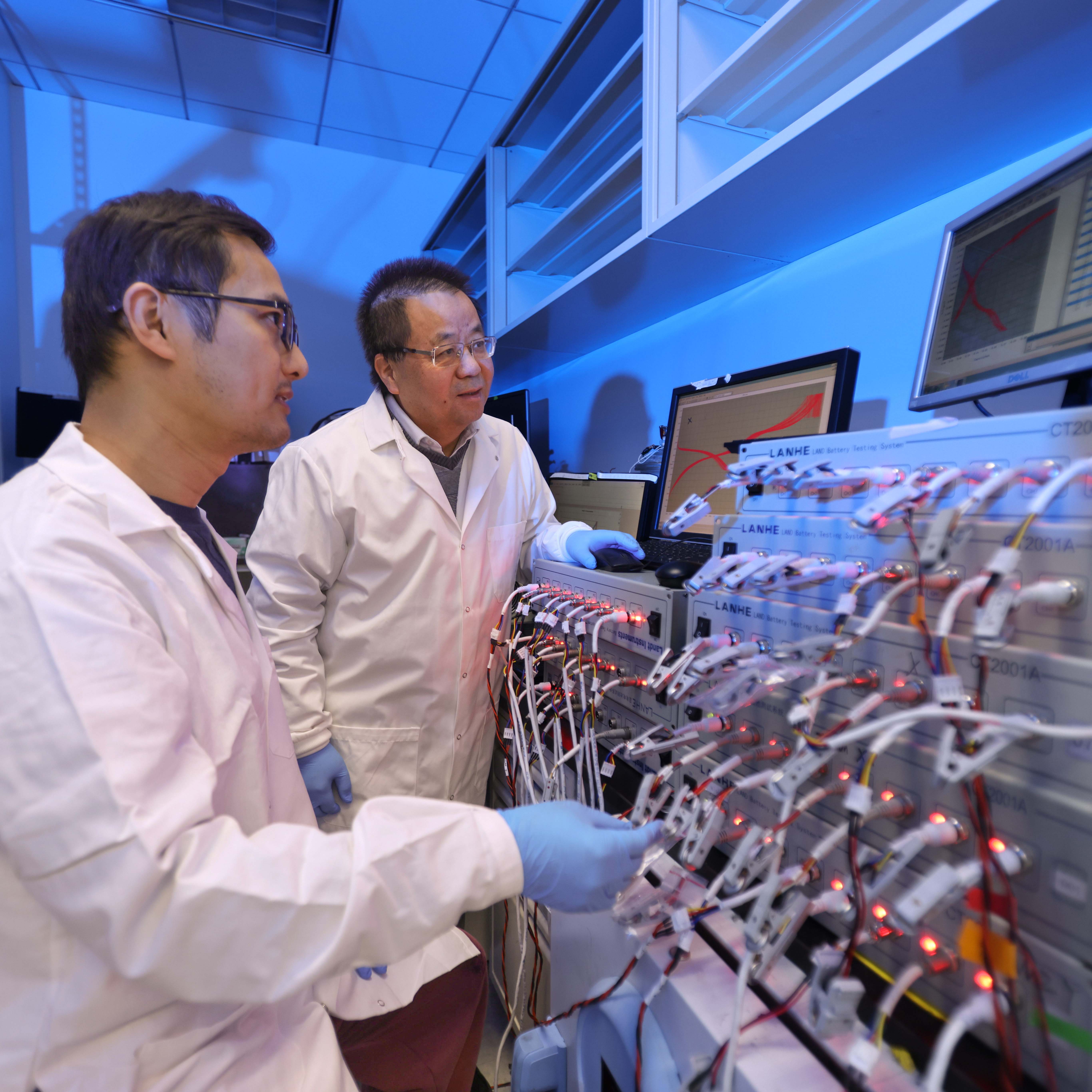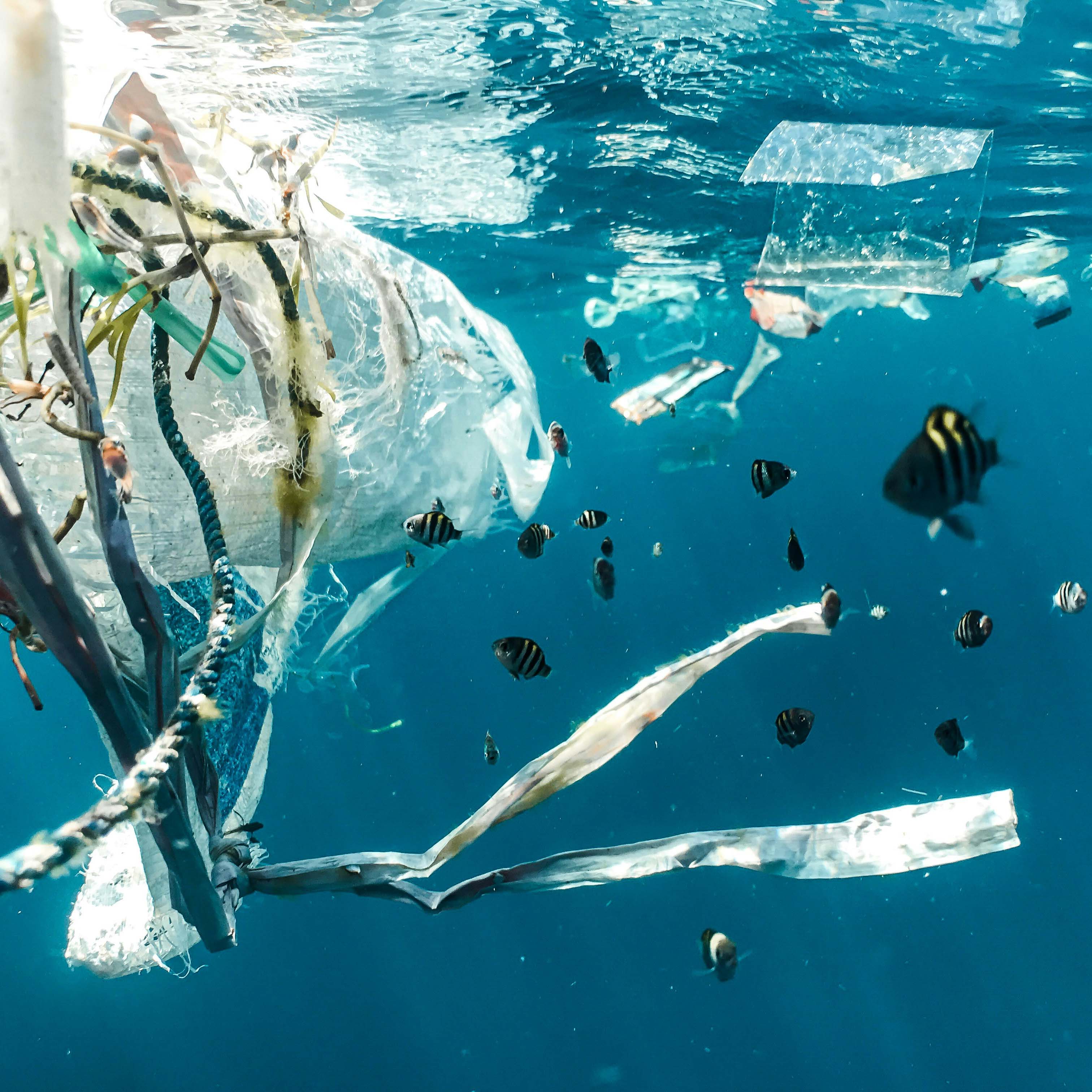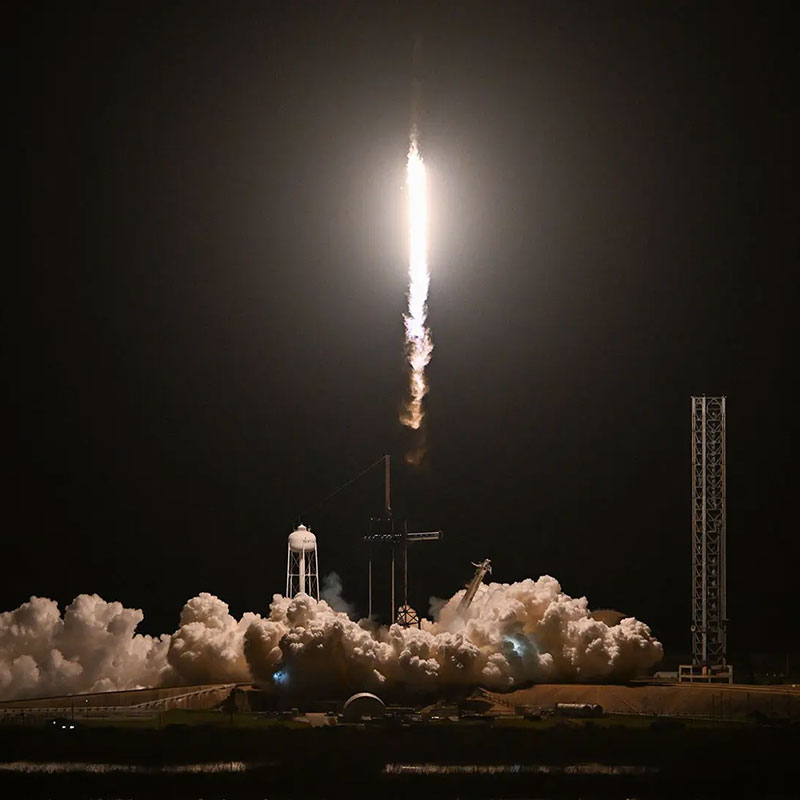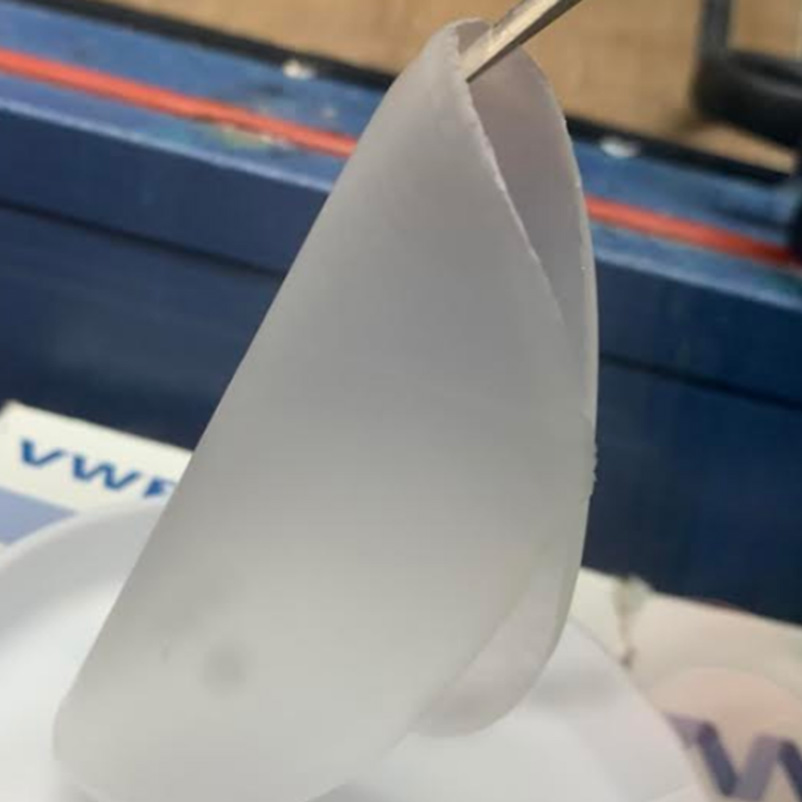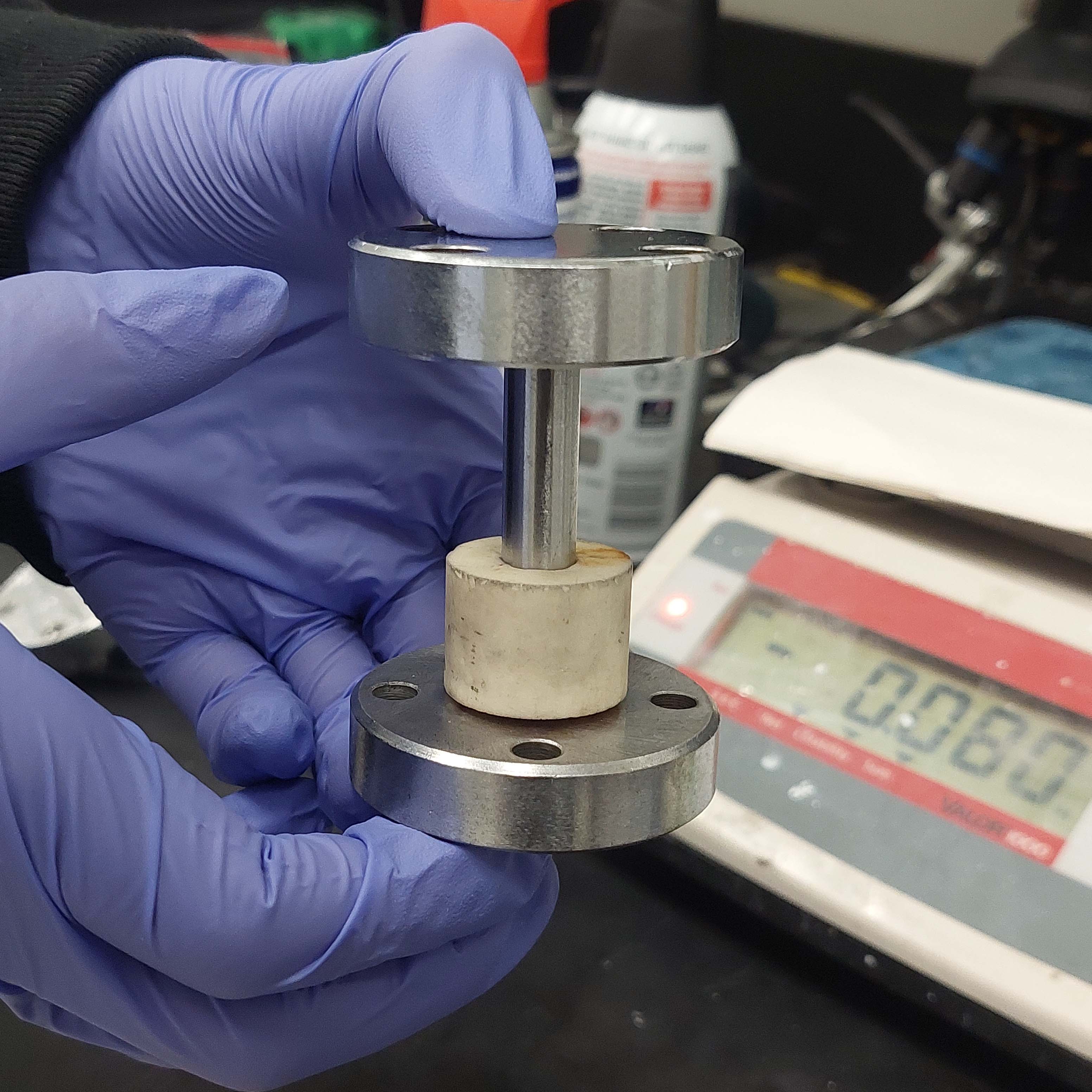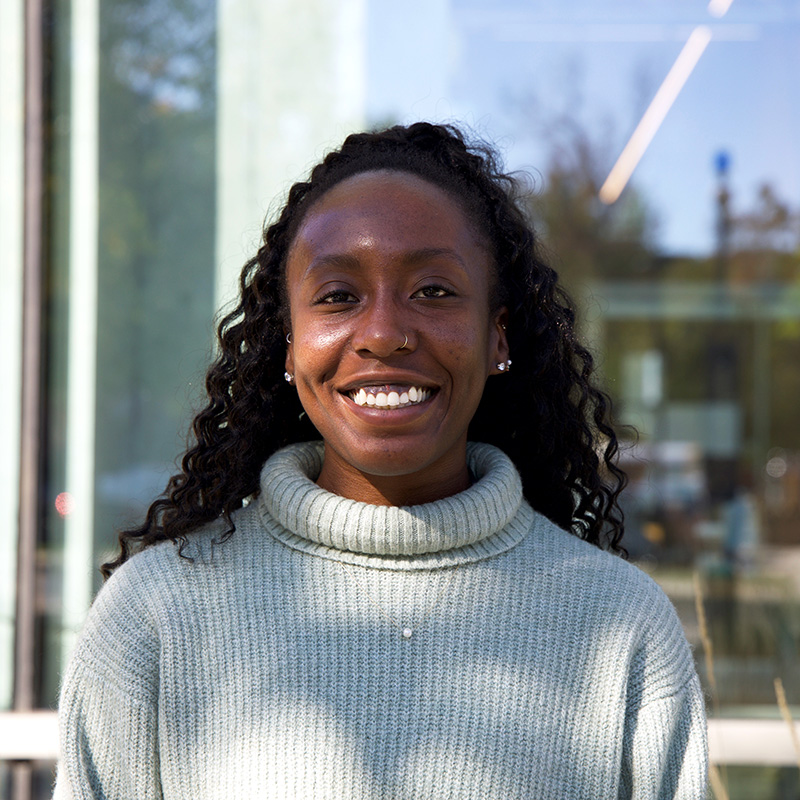News Story
NSF Graduate Research Fellowships for Two ChBE Alumnae
Lauren Dorsey (B.S. ’14) and Meron Tesfaye (B.S. ’13), alumnae of the University of Maryland’s Department of Chemical and Biomolecular Engineering (ChBE), have been awarded Graduate Research Fellowships from the National Science Foundation (NSF). ChBE alumnus Nicholas Yaraghi (B.S. ’13) received an Honorable Mention.
NSF Graduate Research Fellowships, which are among the most prestigious academic awards in the nation, provide three years of support that may be used over a five-year period. For each year of support, the NSF provides a stipend of $30,000 to the fellow and a cost-of-education allowance of $10,500 to the degree-granting institution. Honorable Mentions are granted to meritorious applicants who do not receive fellowship awards as an acknowledgement of significant national academic achievement.
 Dorsey is a first year graduate student in the University of Delaware's Department of Chemical and Biomolecular Engineering, where she works in Professor Wilfred Chen's protein engineering lab. Her current work focuses on engineering a synthetic consortial biofilm. Outside of the lab, she is an active member of the department’s Chemical Engineering Graduate Student Club.
Dorsey is a first year graduate student in the University of Delaware's Department of Chemical and Biomolecular Engineering, where she works in Professor Wilfred Chen's protein engineering lab. Her current work focuses on engineering a synthetic consortial biofilm. Outside of the lab, she is an active member of the department’s Chemical Engineering Graduate Student Club.
“It means a lot that [ChBE] at the University of Maryland was so supportive through the [NSF] application process, and especially now that I've graduated,” she says.
 Tesfaye is currently a second year chemical engineering Ph.D. student in Professor Adam Weber’s research group at the University of California, Berkeley and Lawrence Berkeley National Lab. Weber is a member of the Berkeley Energy Storage and Conversion for Transportation and Renewables (BESTAR) Program, an umbrella organization that addresses the technological barriers to making clean energy technologies widely available. Tesfaye’s contributions toward this goal focus on understanding transport resistances in the catalyst layer of fuel cells. Currently, she is studying gas transport through ultrathin nafion membranes and effect of humidity on them. Her previous projects include hydrogen production of algae, TiO2 thin films for solar applications, and process optimization in plasticizer synthesis.
Tesfaye is currently a second year chemical engineering Ph.D. student in Professor Adam Weber’s research group at the University of California, Berkeley and Lawrence Berkeley National Lab. Weber is a member of the Berkeley Energy Storage and Conversion for Transportation and Renewables (BESTAR) Program, an umbrella organization that addresses the technological barriers to making clean energy technologies widely available. Tesfaye’s contributions toward this goal focus on understanding transport resistances in the catalyst layer of fuel cells. Currently, she is studying gas transport through ultrathin nafion membranes and effect of humidity on them. Her previous projects include hydrogen production of algae, TiO2 thin films for solar applications, and process optimization in plasticizer synthesis.
 Yaraghi is currently a second year Ph.D. student in the Department of Chemical and Environmental Engineering at the University of California, Riverside. He works in Professor Kisailus’ Biomimetics and Nanostructured Materials Lab, where he is studying structure-mechanical property relationships of various damage-tolerant natural composite materials found in the dactyl club (feeding appendage) of the beautiful-but-infamous mantis shrimp, which can smash its shelled prey and even break glass. Yaraghi is investigating how these clubs form in nature in order to design bio-inspired, impact-resistant synthetic composite materials. He was also recently awarded a National Defense Science & Engineering Graduate Fellowship through the Department of Defense. In 2014, he won a Best Poster Award at the Materials Research Society (MRS) Spring Meeting & Exhibit. After completing his doctorate, he would like to pursue a career in academia or at a national laboratory.
Yaraghi is currently a second year Ph.D. student in the Department of Chemical and Environmental Engineering at the University of California, Riverside. He works in Professor Kisailus’ Biomimetics and Nanostructured Materials Lab, where he is studying structure-mechanical property relationships of various damage-tolerant natural composite materials found in the dactyl club (feeding appendage) of the beautiful-but-infamous mantis shrimp, which can smash its shelled prey and even break glass. Yaraghi is investigating how these clubs form in nature in order to design bio-inspired, impact-resistant synthetic composite materials. He was also recently awarded a National Defense Science & Engineering Graduate Fellowship through the Department of Defense. In 2014, he won a Best Poster Award at the Materials Research Society (MRS) Spring Meeting & Exhibit. After completing his doctorate, he would like to pursue a career in academia or at a national laboratory.
Published April 20, 2015
